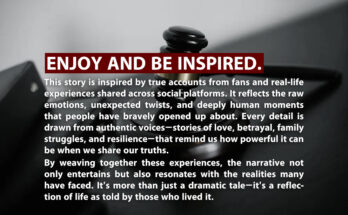I’ve always believed in leading with empathy, but nothing prepared me for the fallout from a simple hygiene request. One of my team members, Tom, had persistent bad breath that made meetings unbearable. I tried subtle hints—offering mints, adjusting seating—but nothing worked. Finally, I pulled him aside and gently suggested he see a dentist or consider brushing more regularly. I thought I was being discreet and kind. Instead, I triggered a storm.
Tom filed a complaint with HR, claiming I humiliated him and created a hostile work environment. I was blindsided. My intent was never to shame him—it was to preserve team morale and comfort. HR launched an investigation, and suddenly, my leadership was under scrutiny. Colleagues were interviewed. My emails were reviewed. I felt like a criminal for trying to solve a problem that no one else dared address.
The team was split. Some thanked me privately, admitting they’d struggled with the same issue. Others stayed silent, afraid to be dragged into the drama. Tom stopped attending meetings and began working remotely. I was told to avoid direct contact with him. The tension was suffocating. I started questioning my instincts, wondering if kindness had backfired.
Weeks passed. HR concluded that while my approach wasn’t malicious, it lacked sensitivity. I was asked to attend a “respectful communication” workshop and warned that future infractions could affect my position. I accepted the feedback, but the sting lingered. I’d tried to protect the team—and now I was the one being punished.
Tom eventually resigned, citing “mental stress.” I felt guilty, but also frustrated. The issue had been real, and no one else had stepped up. I learned that even well-intentioned feedback can be misinterpreted, and that leadership sometimes means absorbing the blow for doing what’s right. Still, I’d do it differently next time.
Now, I tread more carefully. I’ve learned to balance honesty with diplomacy, and to document everything. The experience shook me, but it also taught me that leadership isn’t just about solving problems—it’s about surviving the fallout. And sometimes, even the smallest conversations can put your career on the line.


